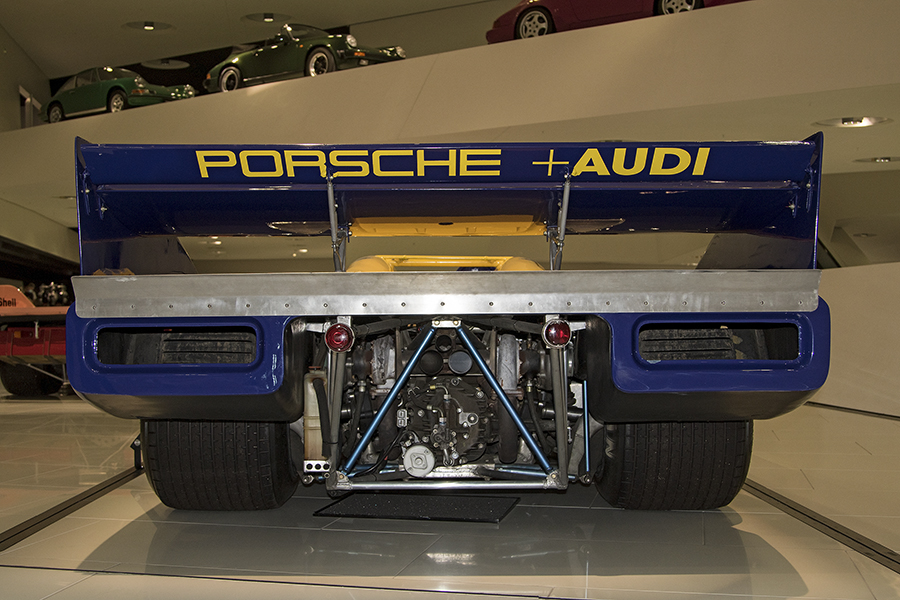Legends Displayed at the Porsche Museum: The Can-Am Killer – 917/30

By Marcel Hundscheid / Speed-O-Graphica
During my visit last year to the Porsche Museum in Zuffenhausen, the Porsche 917/30 caught my eye. On display was chassis 003, used by Team Penske during the 1973 Can-Am championship.
The Can-Am story started in 1966 with the arrival of Group 7 and grew into the formula libre of motorsport in the early 1970s. The regulations of the spectacular series were shorter than the word itself, which allowed manufacturers to go wild. The only requirements were four wheels, at least one wheel drive, an all-encompassing body and room for two seats. This special car, then, dates from the time when there was still a horsepower race between the different manufacturers competing in the championship.
Porsche could not be found in the early years of the Can-Am championship, but the German manufacturer came up with the legendary Porsche 917 thanks to Ferdinand Piëch in 1969. The 917 turned out to be incredibly fast, but in terms of reliability the car left something to be desired.
A year later, Porsche returned with a literal armada of 917s. Hans Herrmann and Richard Attwood gave Porsche the overall victory at Le Mans in 1970 with a 917 K, a further developed variant of the original 917.

In 1971 Piëch developed a 16-cylinder engine with an engine capacity of no less than 6.6 liters, generating 750 hp. Regulatory changes at Le Mans forced Porsche to focus on other series. In Europe the Interserie was created, and with the availability of the open rules in the Canadian-American Challenge Cup, Porsche decided to cross the Atlantic.
The 917/10A was the initial development for Can-Am, featuring an open body and equipped with a twin-turbo 5-liter 12-cylinder engine generating a staggering 1000 hp. With this car, Porsche broke through McLaren’s early dominance in the Can-Am championship.
As the competition prepared the cars for the 1973 season, Porsche presented their bombshell. The ultimate variant of the 917 was the 917/30 equipped with an even more streamlined body, a slightly longer wheelbase and a 5.4-liter 12-cylinder engine.
In qualifying set-up, this beast could generate 1500 hp. Combined with a weight of just 800 kg, the car was an untamed beast. McLaren and the other brands couldn’t answer the 917/30’s dominance and the car won six out of eight races in the 1973 Can-Am championship to once again claim the title.
No racing formula before or since has shown such single-minded dedication leading to mind-warping performance. Due to Porsche’s dominance, engine rules were changed by enforcing a fuel-consumption rule for the 1974 championship. A recession in North America due to the 1973 oil crisis as well as dwindling interest in the series lead to the cancellation of the CanAm series in 1974.

